Serie A in the 1990s, Premier League in the 2000s or La Liga now? Which league had the greatest 'golden era'?
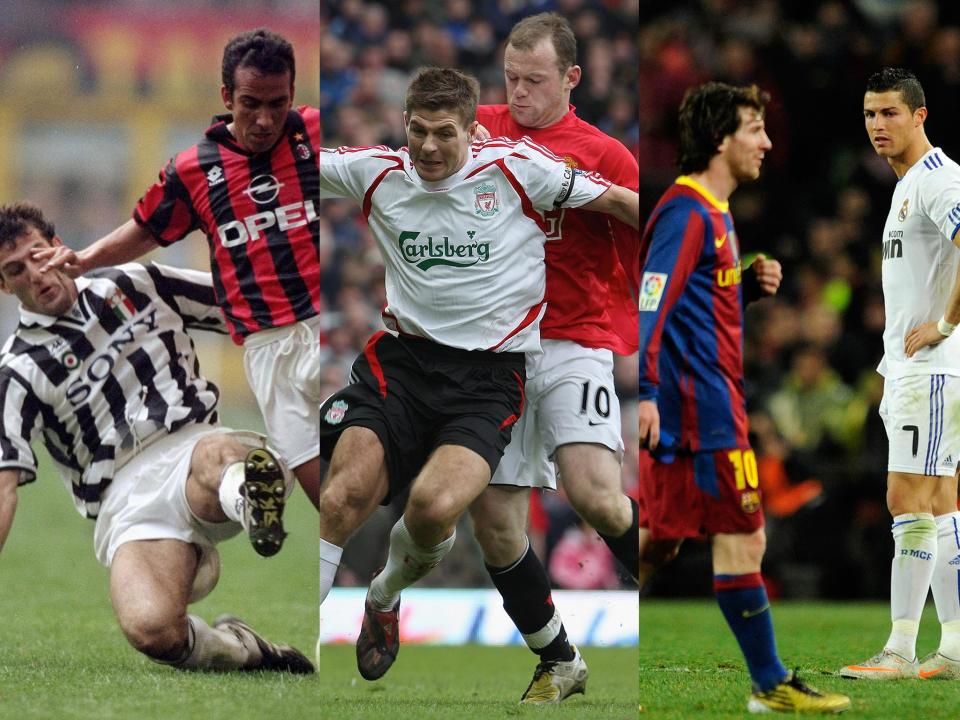
As Johan Cruyff rose above the Internazionale defence to score a rare headed goal, he realised that it didn’t just ensure Ajax rose above the Italian champions to win the 1972 European Cup. It had a deeper significance. That 2-0 marked the peak of a great side as the Amsterdam club won the treble, but also marked a peak for Dutch football. It was the third of four successive European Cups before the transcendent football of the 1974 World Cup, with Feyenoord winning one and Ajax claiming the gold standard of three in a row. Talking about it years later, Cruyff said “it was confirmation that at that time Dutch football was on the level above a lot of others.”
But how does it compare with the rest of the time, with the other league eras that rose to a level above the rest? It is a debate that has been touched upon a little in the last few weeks, with how the Premier League’s poor Champions League performance compares with the ‘big four’ era, when the English competition would regularly have three semi-final places and all of those big four got to the final at least once. The reality is that all the major leagues go through these cycles, and then eventually some spells where a specific set of circumstances come together to collectively create a special era where the country dominates the continent competitions.
The exact meaning of ‘domination’ has evolved over time too. While winning the European Cup has always represented the peak of the game, there was a long period when the Uefa Cup was as representative of the health of the league, given how many of the top sides performed it. It was almost more like the modern Champions League with the way all the second-to-fourth-placed sides would be there. It is also no coincidence that the second-tier competition saw a few rehearsals of future European Cup finals, such as when Liverpool met Borussia Monchengladbach in the 1973 Uefa Cup showpiece, four years before they faced off again in the elite event. Similarly, a distinction must be drawn between the high quality of one or two teams individually lifting a league, and true strength across a competition. Taking all that into account, and when you count up all the trophies and final places over distinctive periods of time, there are some eras that clearly stand above the rest.
10. Italy 1960-69
European Cup winners: 4 (Milan 2, Internazionale 2)
Fairs Cup/Europa League winners: 1 (Roma)
Cup Winners Cup winners: 2 (Fiorentina, Milan)
Beaten finalists: 2 (1 European Cup, 1 Uefa Cup)
Domestic champions: 6 (Internazionale 3, Juventus 2, Milan 2, Bologna 1, Fiorentina 1)
It was a period known as “the lure of the lira” because of how the magnate-powered wealth of the top clubs attracted the world’s top players to Italy for the first time, but what really marked it out was the meanness and frugality of the football. After the goal-laden early days of the European Cup in the 1950s, the Milanese clubs completed one of the most profound tactical shifts in the history of the game, as Internazionale manager Helenio Herrera and Milan counterpart Nereo Rocco brought the defensive ‘Catenaccio’ into the mainstream. Goal rates dropped significantly, as those two sides led Serie A’s rise. The shine of the four European Cups and three other trophies won wasn’t without some darkness, as evidence emerged of bribing referees and doping - especially at Inter. A golden era soon earned the description ‘the golden whistle’, amid so much silverware.
9. Netherlands 1968-75
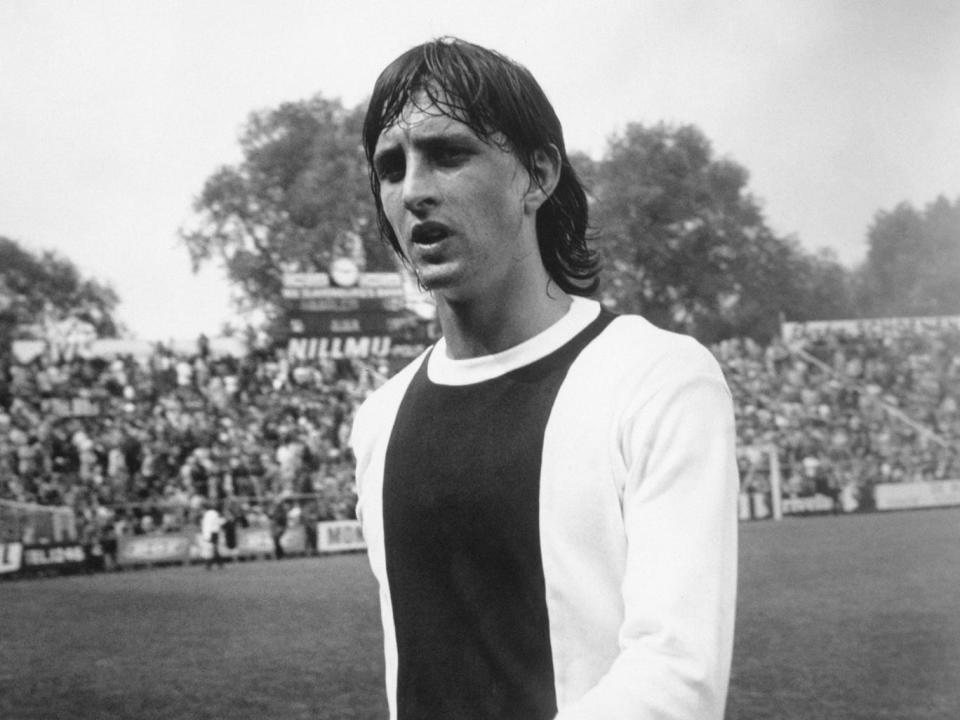
European Cup winners: 4 (Ajax 3, Feyenoord 1)
Fairs Cup/Uefa Cup winners: 1 (Feyenoord)
Cup Winners Cup winners: 0
Beaten finalists: 2 (1 European Cup, 1 Uefa Cup)
Domestic champions: 3 (Ajax 3, Feyenoord 3, PSV Eindhoven 1)
Perhaps more the story of two great club sides rather than one great league, but the influence of this Dutch era arguably went further than any other competition and still fires the game today. This was the period that saw ‘Total Football’ develop among a devastatingly talented Ajax squad, with some of those players then coming together with their great rivals at Feyenoord to produce something globally special with the 1974 Netherlands team. When they weren’t together, those opposing clubs almost had an Ali-Frazier dynamic, driving each other ever further. Ajax got to the European Cup final first in 1969 only to be defeated by Milan and then watch Feyenoord win it the following year, before Cruyff’s club followed that with a treble. This was an era that really went beyond numbers of wins and trophies, and was defined by an ideology, but that very ideology decided so many of those trophies.
8. England 1967-73
European Cup winners: 1 (Manchester United)
Fairs Cup/Uefa Cup winners: 6 (Leeds United 2, Newcastle United 1, Arsenal 1, Tottenham Hotspur 1, Liverpool 1)
Cup Winners Cup winners: 2 (Manchester City 1, Chelsea 1)
Beaten finalists: 2 (1 Uefa Cup, 1 Cup Winners Cup)
Domestic champions: 6 (Manchester City 1, Leeds United 1, Everton 1, Arsenal 1, Derby County 1, Leeds United 1)
It wasn’t quite the seven successive European Cups that English clubs were to start claiming a few years later, but this was very much the preparatory rehearsal, when they properly learned the ropes. That is symbolised by Manchester United emotionally winning England's first European Cup in 1968, a decade after the Munich Air Disaster, and signified by how that opened the way for the country to claim the Fairs Cup and subsequent Uefa Cup for six successive years. In all, eight different English clubs won a European trophy in this time. That emphasised the strength in depth of the English game at the time, something reflected by the fact no club retained the domestic title. If they didn’t have a truly special team like an Ajax yet, they had an awful lot of highly competitive and rigorously managed sides.
7. Spain 1955-66
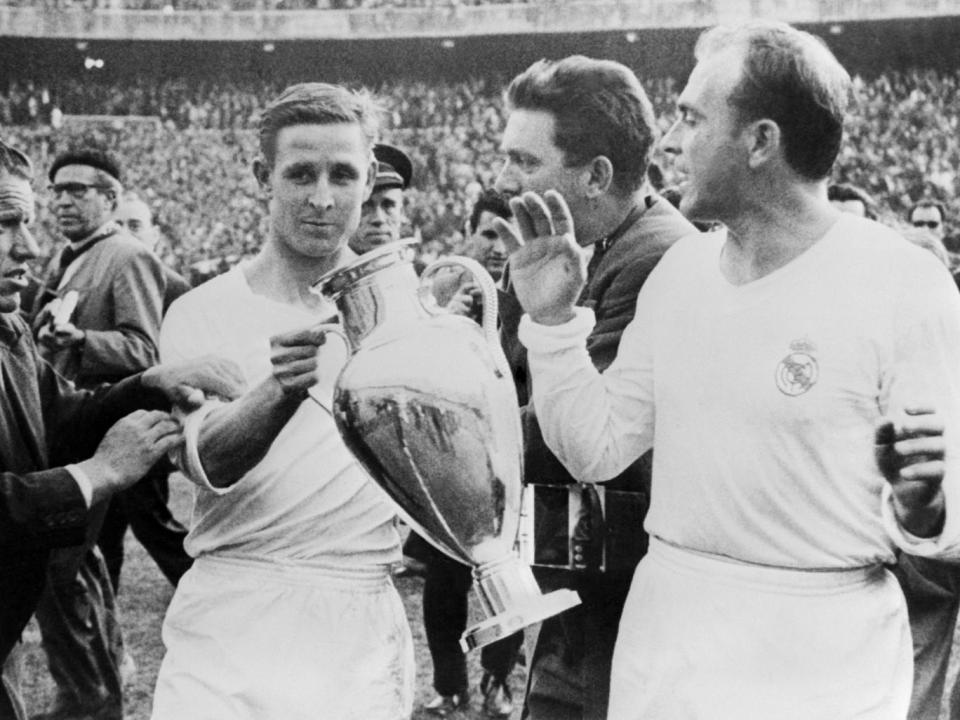
European Cup winners: 6 (Real Madrid 6)
Fairs Cup winners: 6 (Barcelona 3, Valencia 2, Zaragoza)
Cup Winners Cup winners: 1 (Atletico Madrid)
Beaten finalists: 7 (3 European Cup, 3 Uefa Cup, 1 Cup Winners Cup)
Domestic champions: 4 (Real Madrid 7, Barcelona 2, Athletic Bilbao 1, Atletico Madrid 1)
At a time when European competitions were taking their tentative first steps, this was more about a star-studded Alfredo Di Stefano-led Real Madrid stealing a march on the rest of the continent, but the other Spanish clubs quickly got up to speed. They were denied entry to the European Cup due to Real’s eventual domination of the domestic title, but were not to be denied the continent’s other new trophies.
6. Spain 1996-2004
Champions League winners: 3 (Real Madrid)
Uefa Cup winners: 1 (Valencia)
Cup Winners Cup winners: 1 (Barcelona)
Beaten finalists: 3 (2 Champions League, 1 Uefa Cup)
Champions League semi-finalists: 5
Domestic champions: 4 (Real Madrid 3, Barcelona 2, Valencia 2, Deportivo La Coruna 1)
The spell that gave rise to Real Madrid’s Galacticos, and gave notice of what was to come. When the Champions League first expanded to 32 clubs and four each from the major countries, it was Spain that first excelled, dominating the semi-finals. It was so fitting then that it also saw the first one-country final, in 2000. Valencia lost the first of two Champions League finals in two years, while Real won the second of three in five. It said much that a Ronaldo-fired Barcelona could only win the Cup Winners Cup.
5. West Germany 1973-83
European Cup winners: 4 (Bayern Munich 3, Hamburg 1)
Uefa Cup winners: 3 (Borussia Monchengladbach 2, Eintracht Frankfurt 1)
Cup Winners Cup winners: 1 (Hamburg)
Beaten finalists: 6 (3 European Cup, 2 Uefa Cup,1 Cup Winners Cup)
Domestic champions: 4 (Borussia Monchengladbach 3, Bayern Munich 3, Hamburg 3, Koln 1)
An under-appreciated period in European history, especially because of the overwhelming number of wins, and how it produced one of the greatest international sides of all time. That Franz Beckenbauer-led West Germany team beat the Dutch to a double of European Championship and World Cup, so it naturally followed that the Bundesliga also succeeded the Eredivisie as the pre-eminent competition, and Bayern Munich succeeded Ajax in winning three European Cups in a row. It also had the Ali-Frazier style duopoly of the Netherlands in how a fine Borussia Monchengladbach pushed Bayern, if not the same intelligence of ideology, but that was compensated by a true strength in depth. The 1983 European champions Hamburg took over from Bayern and Gladbach as the finest side and, in 1979-80, they were runners-up in the European Cup to Nottingham Forest while four West German sides reached the last four of the Uefa Cup.
4. England 2004-09
Champions League winners: 2 (Liverpool, Manchester United)
Uefa Cup winners: 0
Beaten finalists: 5 (4 Champions League, 1 Uefa Cup)
Champions League semi-finalists: 6
Domestic champions: 2 (Manchester United 3, Chelsea 2)
It was given the name of the ‘big four’ era, but the only caveat was that it didn’t bring quite as many actual titles as it should have. That perhaps aptly reflected the more ‘controlled’ nature of the football of Jose Mourinho and Rafa Benitez. The Premier League still had three clubs in the Champions League semi-finals for three successive seasons, and occupied 12 of the 20 last-four places - 60% - over five years, speaking to some remarkable strength. Only two of the sides, Liverpool 2005 and Manchester United 2008, though, could actually make the big statement of winning it. It shouldn’t be forgotten that Middlesbrough also reached a Europa League final, meaning this era will be remembered as a benchmark.
3. England 1975-85
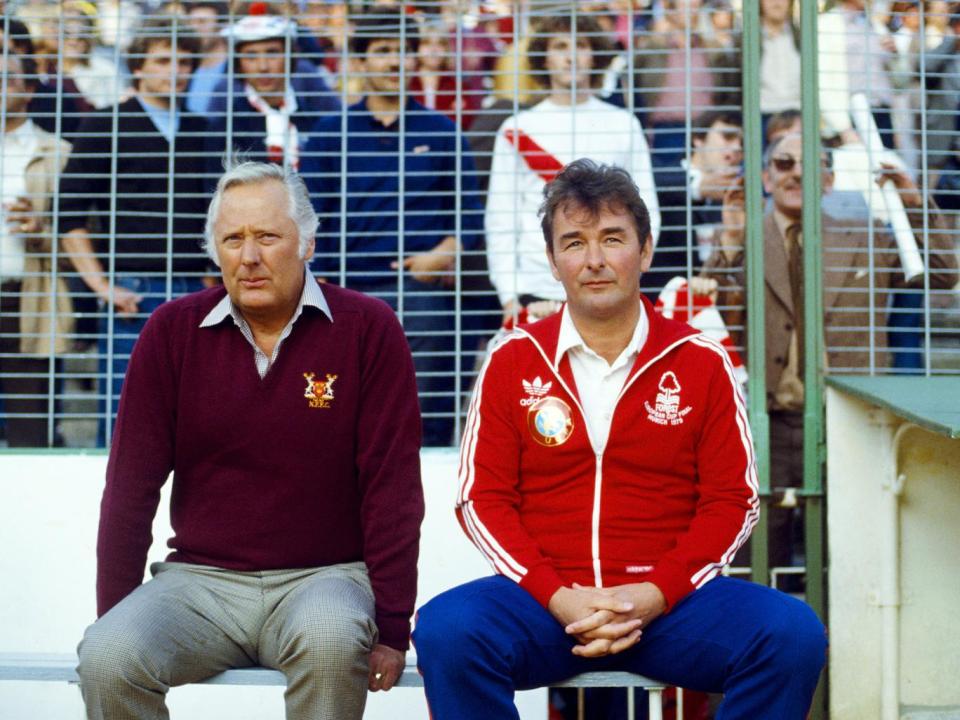
European Cup winners: 7 (Liverpool 4, Nottingham Forest 2, Aston Villa 1)
Uefa Cup winners: 3 (Liverpool, Ipswich Town, Tottenham Hotspur)
Cup Winners Cup winners: 1 (Everton)
Beaten finalists: 2 (1 European Cup, 1 Cup Winners Cup)
Domestic champions: 4 (Liverpool 7, Nottingham Forest 1, Aston Villa 1, Everton 1)
This was Liverpool’s glory era as they won four European Cups, but they didn’t walk alone in Europe. Instead, they seemed to clear a path for Brian Clough’s Nottingham Forest and Aston Villa, as English clubs just developed an impressive and unprecedented canniness on the continent. The remarkable run of seven European Cups going to one country remains a record until it was broken by the tragic events at Heysel. That disaster represented the ugly side of this era, and the wonder remains about how long English domination would have been prolonged for without the problems of its supporters.
2. Spain 2008-present
Champions League winners: 5 (Barcelona 3, Real Madrid 2)
Uefa Cup/Europa League winners: 5 (Sevilla 3, Atletico Madrid 2)
Beaten finalists: 3 (2 Champions League, 1 Europa League)
Champions League semi-finalists: 8
Domestic champions: 3 (Barcelona 6, Real Madrid 1, Atletico Madrid 1)
It’s often said these days that we should be careful not to take the majesty of Leo Messi and Cristiano Ronaldo for granted, but that probably applies to their whole Spanish era. Those two geniuses are merely the apex of a remarkable spell of La Liga dominance, when it has generally been the case they win the majority of European trophies and that their teams mostly only lose to each other. The fact the Clasico two have developed into ‘super clubs’ obviously weighs heavily on this, but doesn’t explain the exceptional performances of Atletico Madrid, and how Sevilla and other Spanish clubs have dominated the Europa League. Then there’s the tactical influence too. The rebirth of Total Football’s pressing-possession through Pep Guardiola’s Barcelona blew European football open again, and saw goal rates radically shoot up from 2.5 during the control of ‘big four’ era to close to 3 in this period amid so much attacking excellence. Few can match them now, or in history.
1. Italy 1988-99
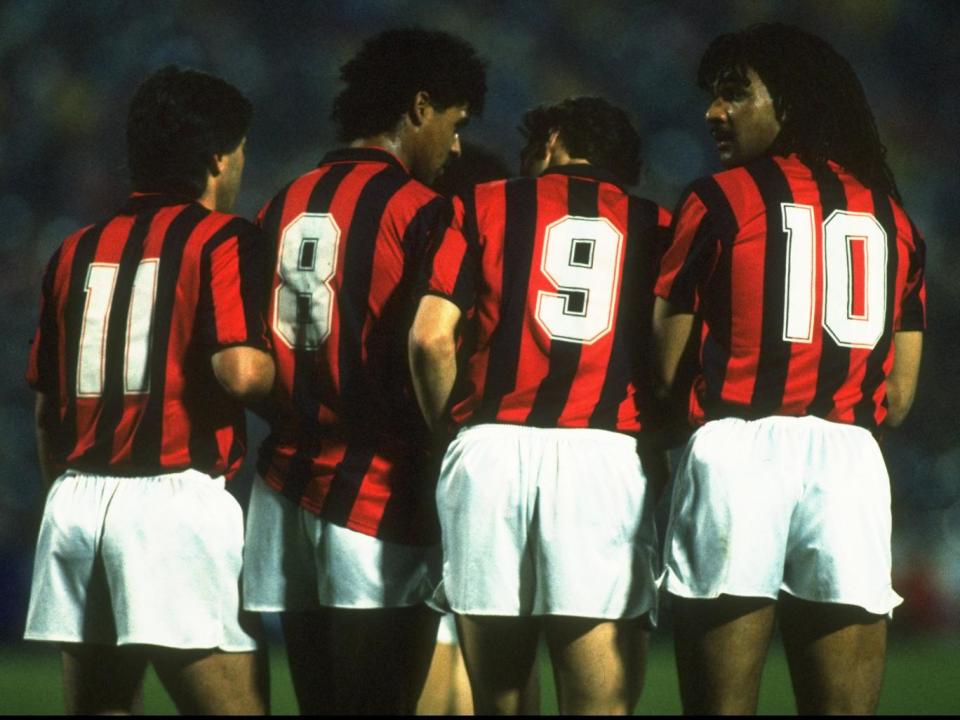
European Cup/Champions League winners: 4 (Milan 3, Juventus 1)
Uefa Cup winners: 8 (Inter 3, Juventus 2, Parma 2, Napoli 1)
Cup Winners Cup winners: 3 (Sampdoria 1, Parma 1, Lazio 1)
Beaten finalists: 13 (5 European Cup, 6 Uefa Cup, 2 Cup Winners Cup)
Domestic champions: 11 (Milan 5, Juventus 3, Inter 1, Napoli 1, Sampdoria 1)
An era that inspires so much fondness and discussion, but that is not just down to mere nostalgia. It is down to remarkable results, and possibly the highest level of football ever seen, at least in terms of concentrated of quality across such a high number of teams. The dynamics of the broadcasting model, and how prestigious Serie A was, meant that every team had a star. This was a period when the Fiorentina of Gabriel Batistuta could finish as low as eighth among 18 clubs but still impress, and Gheorge Hagi’s Brescia were relegated. Even beyond the stars and before we get to the true teams of stature like Arrigo Sacchi’s Total Football-inspired AC Milan and a controversial Juventus, the stats say so much. Of the 66 places in European finals across these 11 years, a remarkable 10 different Serie A clubs occupied 28 of them, and had at least two finalists in every season bar 1995-96. That was when Juventus won one of the four Champions Leagues they shared with AC Milan, making it a total of seven different clubs who claimed trophies. Then there are the names that immediately conjure so many images: Marco van Basten, Diego Maradona, Jurgen Klinsmann, Ruud Gullit, Lothar Matthaus, Beppe Signori, Roberto Mancini, Gianluca Vialli, Dejan Savicevic, Roberto Baggio, George Weah, Alessandro Del Piero, Ronaldo… the list goes on, the era went on for a long time. Like all league cycles, though, it had to end. That is the nature of it, but no era could match the nature of Serie A back then.

